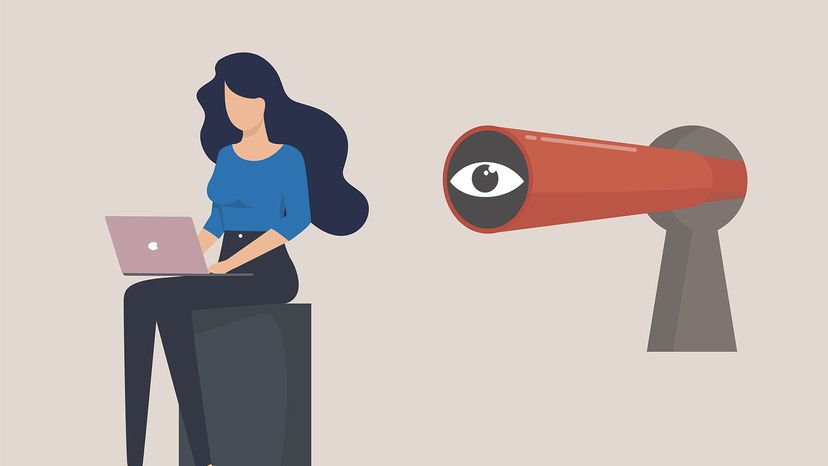
Our senses send more information to our brains than we can process.
Every second, our brains receive around 11 million bits of information. But scientists estimate that our conscious minds can only process around 40 to 200 bits per second. Without our brain’s highly refined ability to filter only the most relevant, we could not function.
Our brain’s filtering mechanisms are designed to protect us. Conditions like ADHD, schizophrenia, and autism are often associated with atypical filtering that can result in painful sensory overwhelm.
Yet attenuated sensory filtering has also been linked to creativity and the ability to experience—at times—intense perceptions of beauty. While we need to limit the onslaught on our senses, there is also a danger from over-filtering. Today, many people seem to notice little around them, living lives of deep routine, immured from the world except what comes to them through their digital devices. Their constrained perception restricts not just what they see, but every aspect of their thinking, experience, and lives.
Effectively filtering out the irrelevant while noticing what matters is a skill fundamental to survival and success. While our individual neurophysiology can help or hinder this, we can tap our brains’ neuroplasticity to improve our sensory filtering capabilities. Just because our brains have a default filtering mechanism doesn’t mean we need to accept it. As novelist Marguerite Duras reminds us, “The art of seeing has to be learned.”
What Information Serves You?
Changing our brain’s programming requires us to apply both technological and cognitive filters. To do that, we need a criteria to assess what should pass through our filters and what we should ignore. Considering your purposes for engaging with information is a great starting point and provides valuable guidance. However, by themselves, that doesn’t always provide clarity on what—specifically—is worth your precious attention.
My old friend Karl-Erik Sveiby observed over 20 years ago that while some information has value, a great deal of information has negative value when the cost of the time and effort of consuming a piece of information is greater than what it brings you. This is especially so if it’s misleading, inaccurate, or outright false, which is (depressingly) common these days. We need to be able to assess whether any given information has positive or negative value for us, based on our unique circumstances and intentions.
Information serves us if it helps us to understand the world better, make better decisions, and live more fulfilled lives, even in the smallest way. Information does not serve us well if it misleads us, reinforces our biases, makes us unhappy, or simply wastes our time and attention by being irrelevant to our intentions.
We also need to be cognizant of the impact of information on our mood and emotions. Many studies have demonstrated a correlation between depression and overuse of social media. The word “‘doomscrolling,“ describing compulsively following upsetting news, was first used in 2018. Two years later the rise of coronavirus made it an accurate description of how we all behaved, earning it an accolade of “word of the year.“
The reality is almost all reported news is negative, and most ‘good news’ initiatives have failed abysmally. Yet we can make an effort to limit consuming news that distresses you and turn to what we find encouraging or inspiring. Make a point of noticing the influence on your mood as you consume different kinds of news. As you can, tend towards what uplifts you and away from what adversely impacts you.
When you seek to identify whether information serves you well, the most important consideration is if it enhances your mental models. It is natural and useful to identify how the information fits within your current thinking, belief systems, and existing knowledge.
But this can’t be the only filter that your brain employs.
You also need to seek the most interesting evidence that could show that what you believe might, in fact, not be precisely true. It’s tempting to keep consuming information that validates your way of thinking, but if this is your only filter, you put yourself at greater risk of misinformation.
So how do you determine that balance? It all starts with intention.
Your knowledge frameworks are the foundation of your mental models, thinking, and decisions. You should assess any new information in relation to your frameworks. Do they fit within it, and how? Does it refine your thinking? Provide new evidence to consider?
If the answer to at least one of those questions is ‘yes’, then the information merits further consideration. If you answer no to all of those questions, then it is probably worth examining it with a skeptical eye.
Simple behavior changes can make a big difference. As you retrain your brain’s filtering mechanism, you might just discover that dealing with information overload is something that your brain can handle after all.
Excerpt from Thriving on Overload: The 5 Powers for Success in a World of Exponential Information by Ross Dawson. It is reprinted with permission from McGraw Hill.




